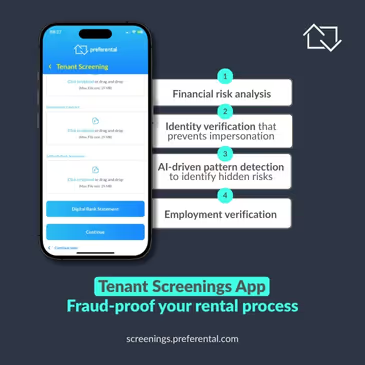AI-Driven Property Scams: A growing threat to Real Estate
- Criminals are weaponising AI to create convincing fake listings, documents, and even deepfakes to scam property owners and buyers.
- Sectional title schemes are prime targets, with levy statements and managing agent emails being manipulated by AI tools.
- Trusted property professionals and secure verification practices are the strongest defence against these evolving digital threats.
Introduction: When Technology Turns Risky
Artificial intelligence (AI) is reshaping the property sector, unlocking efficiencies, streamlining processes, and improving communication. But the same tools that make life easier are also being hijacked by criminals.
Across the globe, and increasingly in South Africa, scammers are using AI to carry out sophisticated property frauds. Their targets include buyers, sellers, tenants, and sectional title communities.
Pearl Scheltema, CEO of Fitzanne Estates, warns that the risks are escalating fast: “AI can generate fake property listings, forge official documents, and even produce deepfake videos of supposed owners or agents. That’s why working with trusted property professionals, particularly experienced sectional title managing agents, is more important than ever.”
How Scammers use AI to target Property Owners and Communities
International cases reveal just how advanced AI-assisted scams have become. In the U.S., fraudsters used deepfake video calls to impersonate a property owner and nearly succeeded in selling the home without consent.
South Africa is not immune. Rental scams enhanced by AI are on the rise, where fraudsters generate convincing online listings with AI-polished images, then pressure victims to pay deposits before viewing. AI is also being used to create realistic identity documents, contracts, and even proof-of-payment slips, making fraudulent deals harder to detect.
Sectional title schemes are particularly vulnerable. Levy statements have been intercepted and altered so payments are rerouted to scammer accounts. Emails with forged letterheads and AI-generated signatures, appearing to come from a managing agent, are often indistinguishable from the real thing.
The Threats and How Professionals Can Respond
According to Scheltema, professional sectional title managing agents are uniquely positioned to protect communities.
They can:
- Implement secure communication channels and discourage financial instructions by email.
- Confirm levy and payment details directly with trustees or owners.
- Train trustees and owners to spot red flags in digital communication.
“Managing agents don’t just arrange maintenance and collect levies; we’re a community’s first line of defence against both financial and digital threats,” says Scheltema.
Beyond sectional title communities, broader property scams are proliferating from fake rental listings with AI-generated interiors, to estate agents and attorneys being impersonated using AI-powered voice cloning. Fraudsters prey on urgency, often pushing victims to act quickly before verifying details.
The Warning signs
Scheltema urges property stakeholders to stay alert and proactive:
- Verify payment instructions directly with a trusted contact before transferring funds.
- Avoid urgent, high-pressure requests for money.
- Work only with registered professionals, confirmed through governing bodies.
- For sectional title owners: attend trustee meetings regularly and keep communication open with your managing agent.
While AI brings serious risks, it also provides opportunities for better service. Scheltema explains:
“We use technology ourselves to streamline processes, improve communication, and enhance the security of the properties we manage. The challenge is making sure technology serves our clients rather than criminals. That’s why trusted professionals are so vital, we know the industry, we know the risks, and we know how to put safeguards in place.”
Conclusion
Although many of the most shocking AI-related property scams have been reported overseas, South Africa is seeing clear warning signs. As more property dealings move online, vigilance, education, and professional oversight are non-negotiable.
Fitzanne Estates established in 1982, continues to invest in secure systems, staff training, and community education to stay ahead of the curve. Their commitment remains clear: protecting property owners, tenants, and investors while ensuring safe, transparent, and well-managed communities in an increasingly digital world.













.avif)


.avif)

.avif)




.svg)





























.avif)
